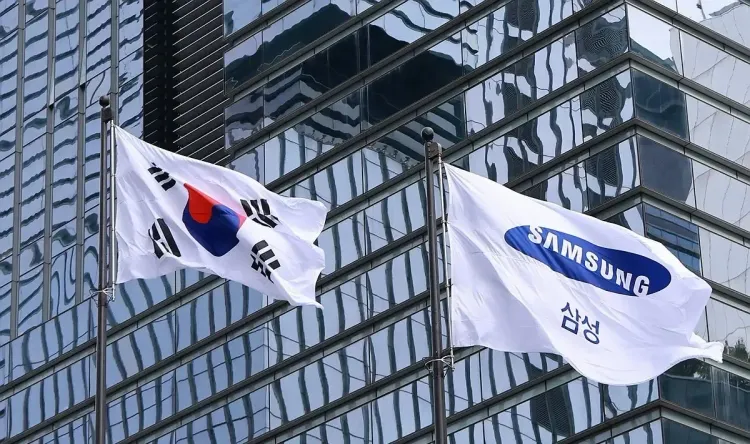Is Samsung Set to Provide Stock Compensation to Employees?

Synopsis
Key Takeaways
- Samsung introduces a new stock compensation program.
- Employees will receive shares based on stock performance.
- The initiative is linked to a projected 31.8% increase in Q3 earnings.
- Shares will be distributed over three years starting in 2028.
- New program contrasts with the existing OPI system.
Seoul, Oct 14 (NationPress) Samsung Electronics Co. announced on Tuesday its intention to introduce a stock compensation program for its employees as the company anticipates posting impressive earnings for the third quarter. This South Korean technology leader informed its workforce about the new performance stock units (PSU) initiative, where employee compensation will be linked to Samsung's stock performance, according to reports from Yonhap news agency.
The announcement followed Samsung Electronics' earlier earnings guidance, predicting an operating profit of 12.1 trillion won ($8.5 billion) for the quarter ending in September, reflecting a remarkable 31.8 percent increase from the previous year's 9.18 trillion won.
This would signify the highest quarterly earnings since the second quarter of 2022, when the company achieved an operating profit of 14.1 trillion won.
Under the PSU program, Samsung plans to allocate between 200 to 300 shares to each employee based on their career level, with the exact amount dependent on the company's stock performance on the main index. The shares will be distributed over a three-year period starting in 2028.
For instance, if Samsung shares appreciate by 40 percent to 60 percent from Wednesday until October 13, 2028, employees will receive the full allocation of 200 or 300 shares.
Should Samsung shares appreciate between 60 percent and 80 percent, the number of shares granted will increase by 1.3 times, and by 1.7 times if the stock rises more than 80 percent but less than 100 percent.
If the stock price doubles or more, the share allocation will be doubled.
This initiative represents a shift from the existing excess profit incentive (OPI) system, where bonuses are calculated by subtracting certain costs, such as taxes and investment spending, from operating profit.
Moreover, Samsung Electronics has permitted employees to receive a portion of their OPI bonuses in the form of shares rather than cash.









